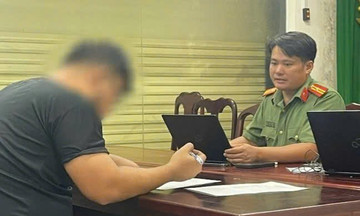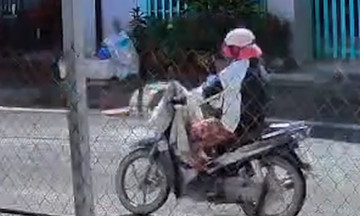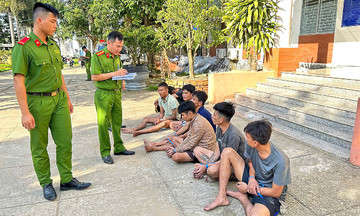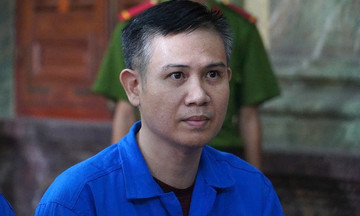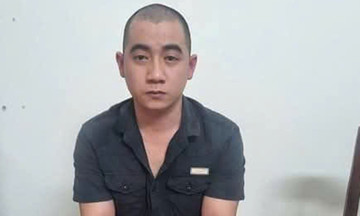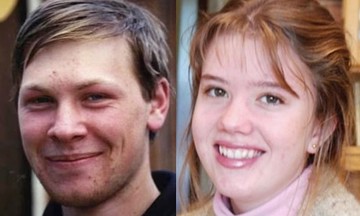In 2016, four women and one man were sentenced to prison for drugging men and stealing thousands of USD from their credit cards at New York strip clubs. Three years later, one of them, Roselyn “Rosie” Keo, the ringleader, posed for photos at the Toronto International Film Festival and watched Hustlers, the story of her own life, unfold on screen.
“I don’t think I’m a scammer. I’m a businesswoman. I just chose the wrong industry. I’m smart enough, I know,” she told the press, adding that she had once dreamed of being a Wall Street businesswoman.
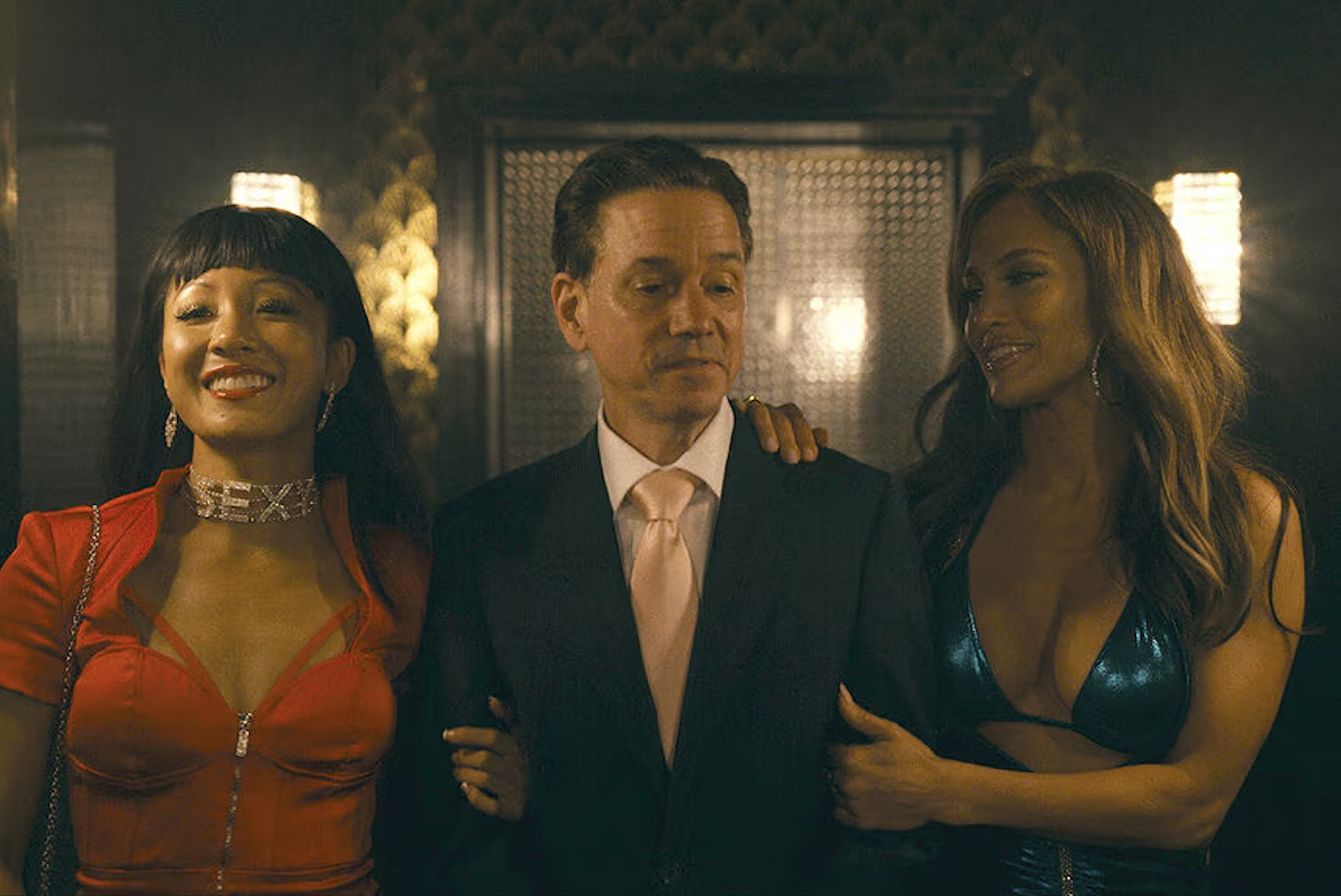 |
A scene in Hustlers depicts two strippers, played by Constance Wu (left) and Jennifer Lopez, luring a wealthy man into a strip club to drug and rob him. Photo: Hustlers |
A scene in Hustlers depicts two strippers, played by Constance Wu (left) and Jennifer Lopez, luring a wealthy man into a strip club to drug and rob him. Photo: Hustlers
According to Rosie, her parents were Cambodian refugees who came to America hoping for a better life, but ultimately left her with her grandparents to pursue their own ambitions.
Dropping out of school at 17, Rosie took a job at a diner to help her grandparents. Late at night and early in the morning, she made coffee and took orders from customers, many of whom were employees of Lace, a nearby gentlemen’s club.
One night, one of Lace’s managers tipped her $20 for a cup of coffee, looked her up and down, and suggested she stop by Lace if she wanted to make more money.
This was in the early 2000s, when the adult entertainment industry in America was at its peak. Stripping was no longer seen as degrading but rather as sexually liberating and empowering. Strip clubs successfully marketed themselves as uninhibited yet harmless places for both men and women. Celebrities and athletes were happy to be photographed with topless dancers.
Rosie saw on television the huge stacks of cash that dancers counted after each night. The next day, she went to Lace and was immediately hired, earning $500-$1,000 a night. After years in the business, her earnings reached $2,000 per hour.
But Rosie knew the real money was in Manhattan, in Times Square. She moved to Hustler club and had a fateful encounter with Samantha Foxx, her future accomplice in the scam.
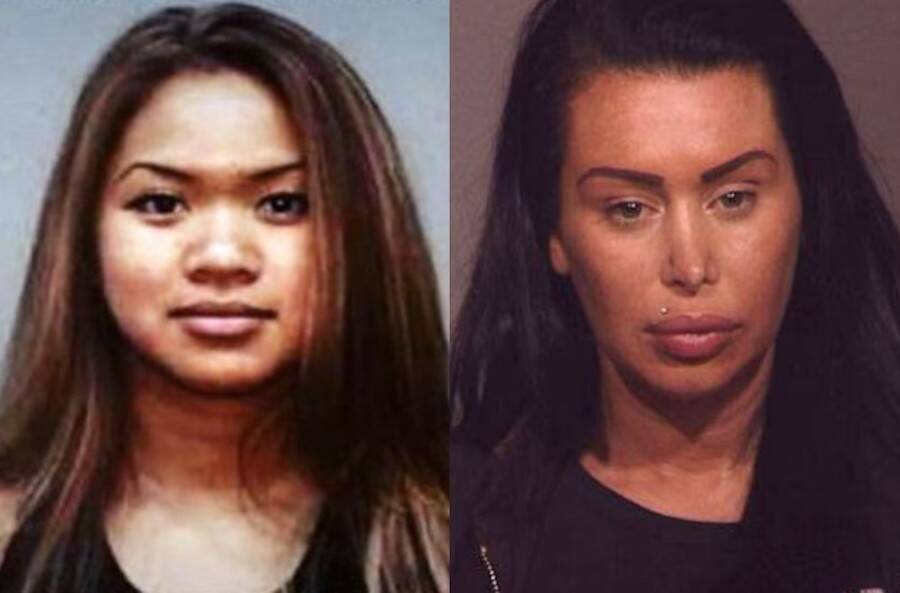 |
Rosie (left) and Samantha upon their arrest in 2014. Photo: ATI |
Rosie (left) and Samantha upon their arrest in 2014. Photo: ATI
Samantha was a single mother from the Bronx who started dancing at 19 and had been the club’s top earner for years. But when they met, Samantha was over 30, old by stripper standards.
Instead of competing, they realized they could make more money together because “men tend to lose control more when they are surrounded by multiple women,” Rosie concluded. Their clients were mostly Wall Street millionaires; some guys would bring $100,000 to the club and spend it all in an hour. This was 2007.
Flashing their wealth and crisp hundred-dollar bills, these married clients would still demand “unimaginable depraved services” from the dancers and, when drunk, would become abusive and verbally assault them.
The women also had to pay a “fee” of $300-$500 per day to “work” and give the club 40% of their nightly earnings. All of this, combined with the 2008 financial crisis, meant fewer customers and less spending at the club. Rosie and Samantha started brainstorming other ways to make money.
Going Fishing
They recruited Karina Pascucci, a waitress at the bar and freelance masseuse, to join their scheme. Rosie and Karina would go to bars and restaurants across the city to flirt with men. They dressed like office workers, pretending they had just finished a long day at work. When they saw platinum cards, Hublot or Patek Philippe watches, they knew they had found their "big fish".
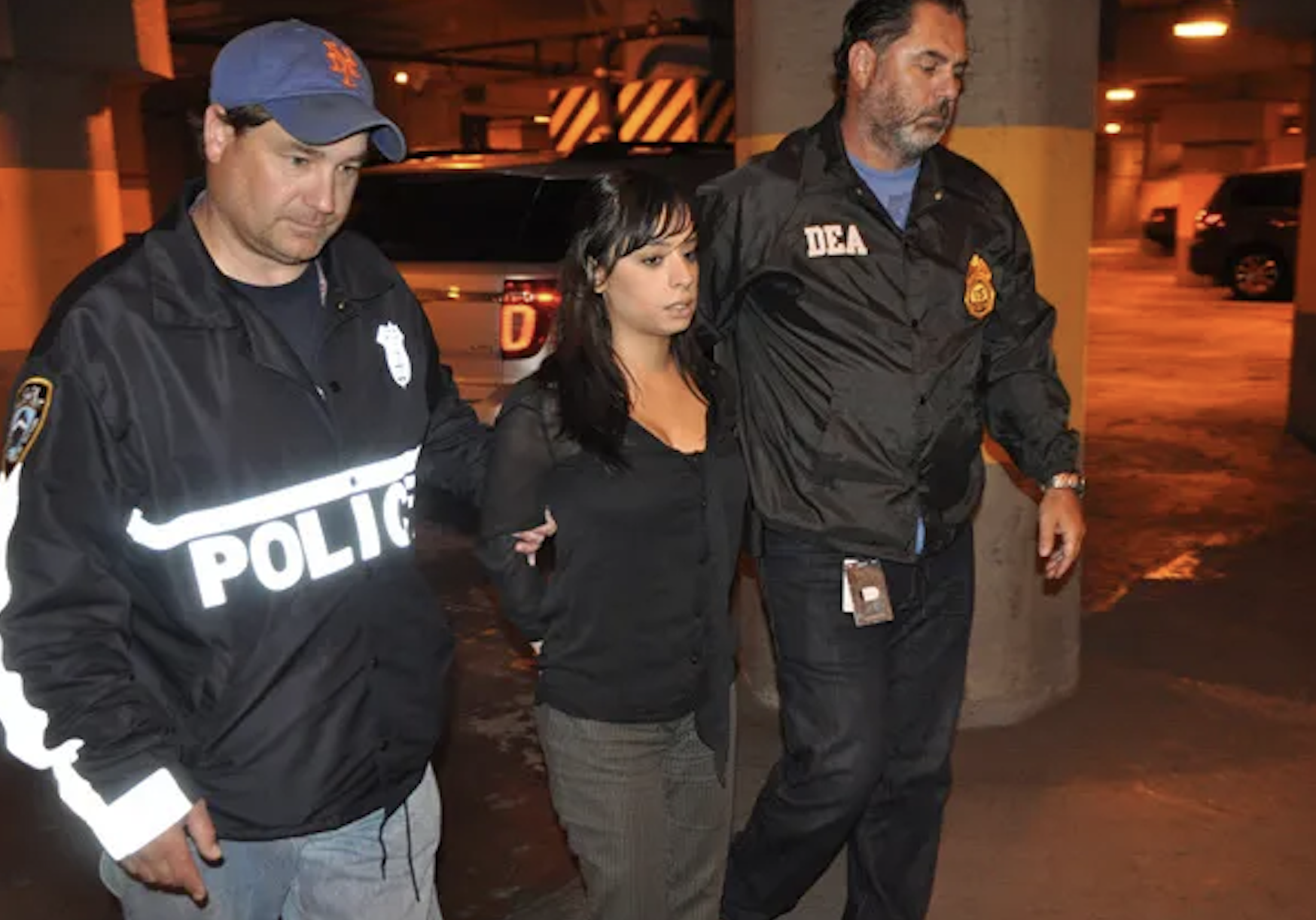 |
Karina Pascucci upon her arrest in 2014. Photo: ATI |
Karina Pascucci upon her arrest in 2014. Photo: ATI
Once they convinced a client to come to the strip club, the women would receive a percentage of the revenue. But the scam became more sophisticated when they started offering clients drugs, taking advantage of their intoxicated state to steal from their cards.
Sometimes, clients were too tired and refused the drugs. Samantha then devised a way to secretly mix drugs into their drinks, “just a pinch, like a pinch of salt,” she later said.
The large sums on the clients’ cards often triggered fraud alerts at credit card companies. The strippers would simply impersonate the victims’ assistants, using their smooth-talking skills on the phone to bypass security.
Rosie said she kept telling herself she would stop once she had enough money in the bank. “Then when I had $100,000, I said, half a million dollars and I’ll quit. Then after that, it was a million dollars and I’ll quit. It was never enough,” she said.
The strippers also didn't think the victims would call the police or complain about being scammed at a strip club. They assumed most men would be too embarrassed and would just chalk it up to a wild night.
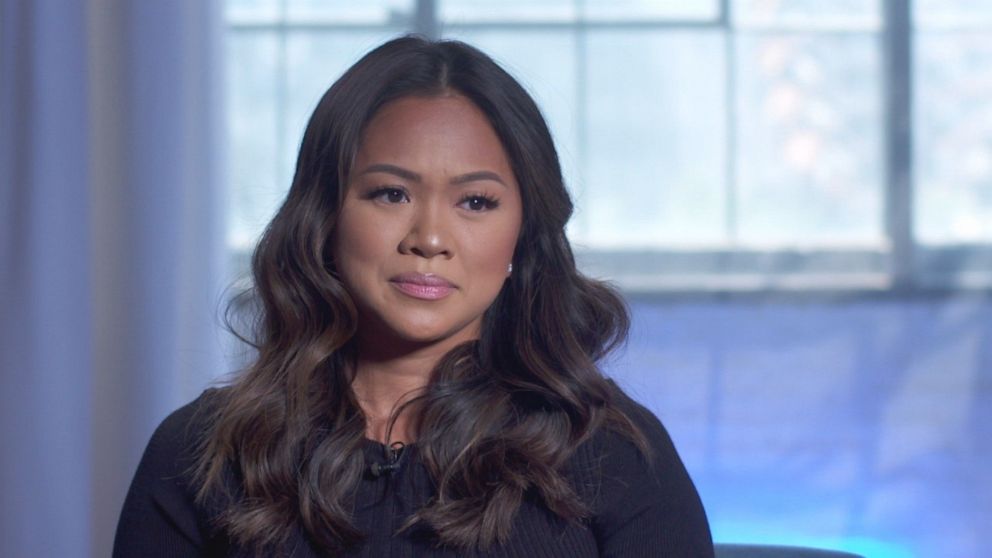 |
Rosie in a 2019 press interview when the film Hustlers was released. Photo: ABC |
Rosie in a 2019 press interview when the film Hustlers was released. Photo: ABC
What they didn’t anticipate was that one of their victims would be Dr. Zyad Younan, who was unmarried and not afraid to face his boss.
Caught in the Net
Younan received a call from his credit card company informing him that $135,000 had been spent at a strip club. The wealthy cardiologist from New Jersey said he had never been to a strip club, let alone been caught on camera there for three consecutive nights.
He only remembered going out with Karina three times, along with her “sisters,” and couldn't recall what happened afterward. His lawsuit against the credit card company made him the subject of public ridicule for “losing money to girls” and then suing to get it back. No one believed he was scammed, except the police.
In fact, the police had been tracking the scammers for months. Before Dr. Younan, another anonymous witness had submitted a recording to the police. In it, he called one of the strippers, begging for his $17,000 back because his life was falling apart. She didn’t return the money but told him the truth.
But to launch a sting operation to catch Rosie, Samantha, and Karina, the police were struggling to find victims willing to come forward. “The number of people willing to report to us was ridiculously low. Men don’t want to admit to being victimized by women,” investigators said. Dr. Zyad Younan was exactly who they needed.
The police later tracked down a female "associate" of the three strippers, and her testimony became the basis for further charges.
After an 8-month investigation, the operation by the New York City Police Department, the Special Narcotics Prosecutor’s Office, and the Drug Enforcement Administration (DEA) led to the indictment of the three strippers, a female associate, and a male bar manager.
Only four victims were identified, though the actual number was likely much higher.
Trailer for the film Hustlers, based on the case and starring Jennifer Lopez as Samantha
Samantha and Rosie were both charged with Conspiracy to Commit Grand Larceny, Grand Larceny, Assault, and Forgery. They pleaded guilty and received five and six years of probation, respectively; their accomplices received suspended sentences.
The 2019 film Hustlers was inspired by this scheme, with Jennifer Lopez playing Samantha and Constance Wu playing Rosie. Rosie also wrote a book about her experience as one of the ringleaders, titled The Sophisticated Hustler. Karina was excited about the film and attended the premiere with Rosie.
Unlike her two friends, Samantha was not thrilled about the film’s release. In 2019, she claimed the film was based on false information and sued Jennifer Lopez for the way she was portrayed. “They are fictionalizing my story. I’m not a stripper. It’s character defamation.” She lost the case.
Samantha later wrote a book titled Underscore, claiming it was the true story of what she actually did during the scam.
Hai Thu (Time, ABC)



